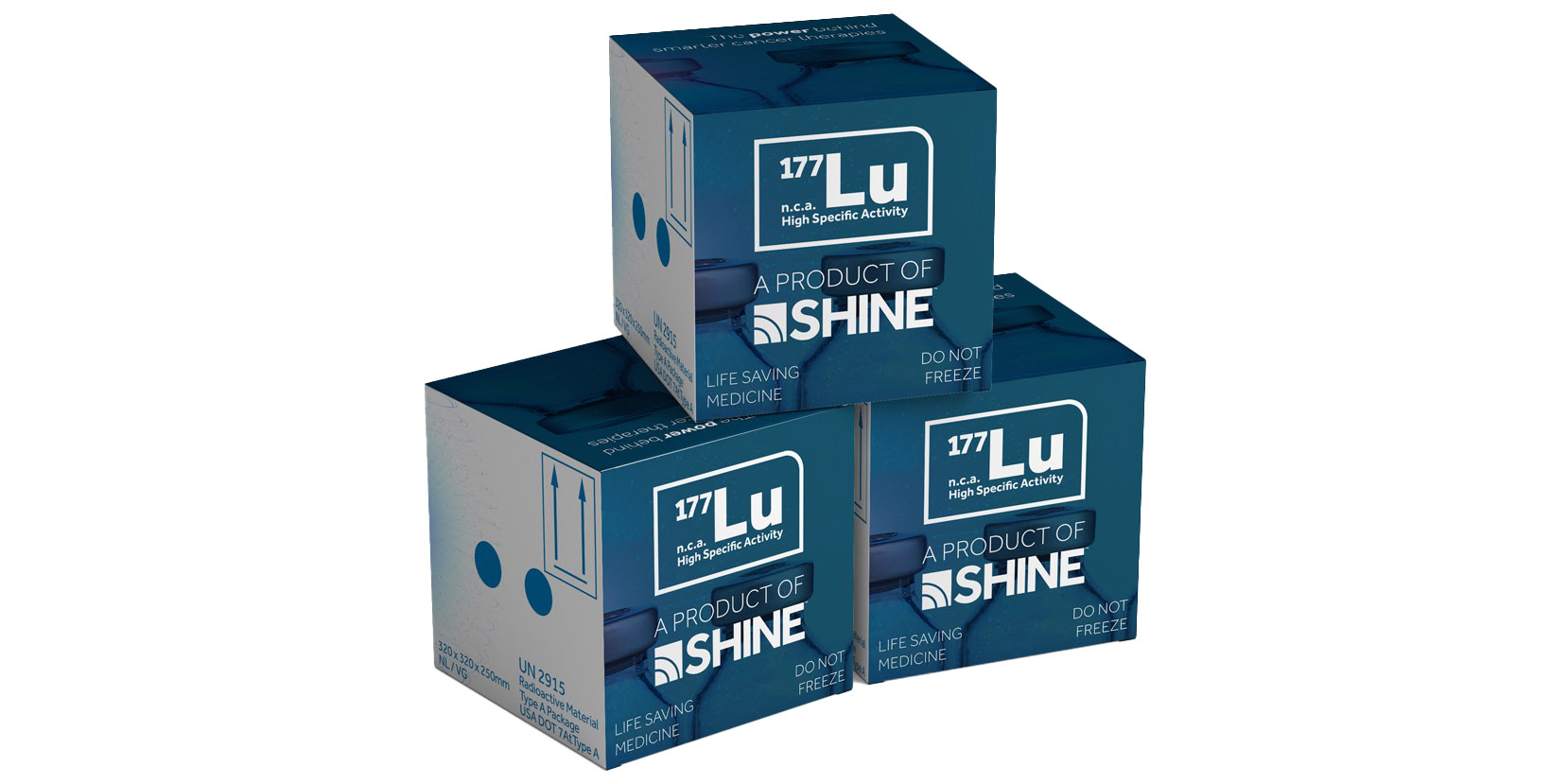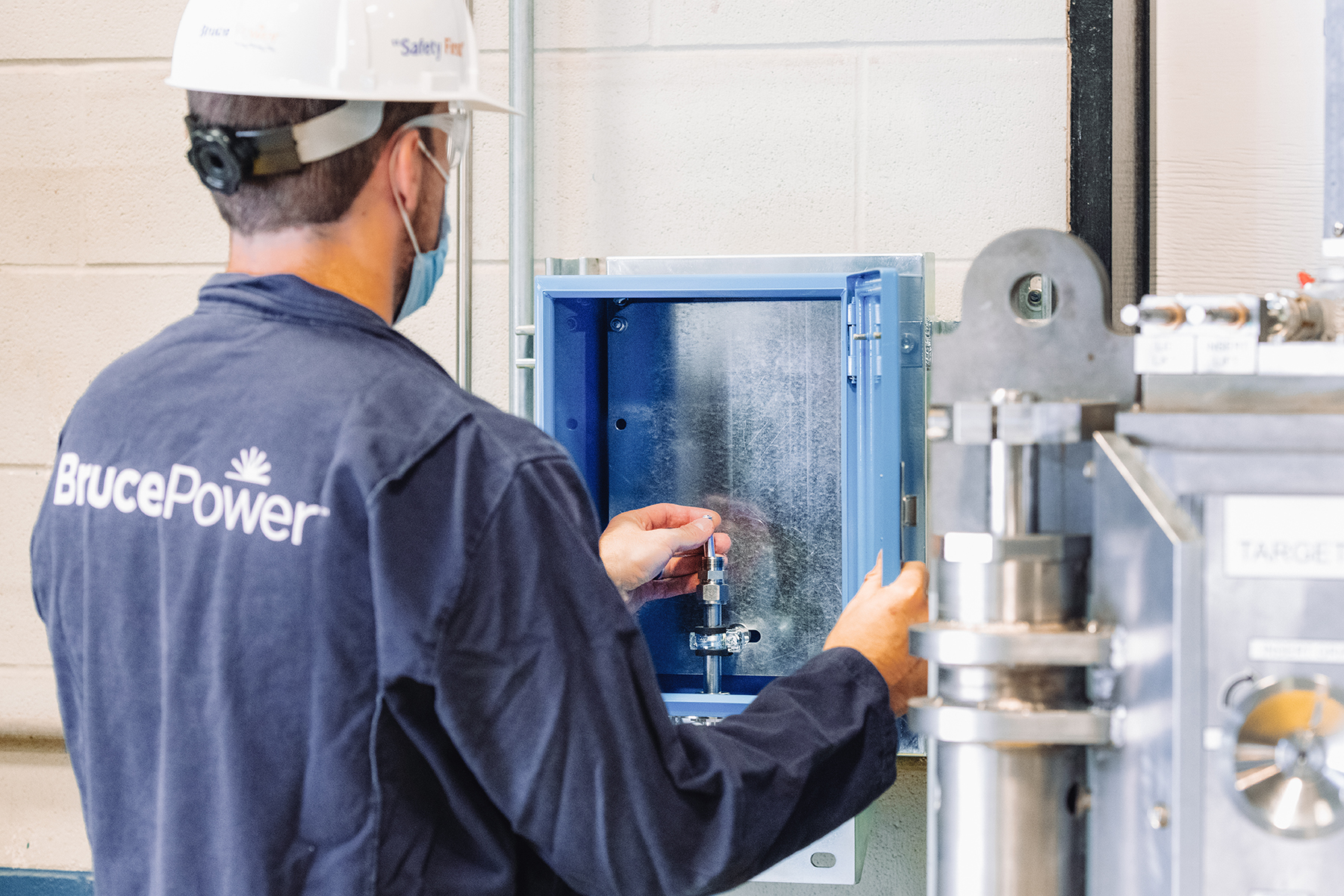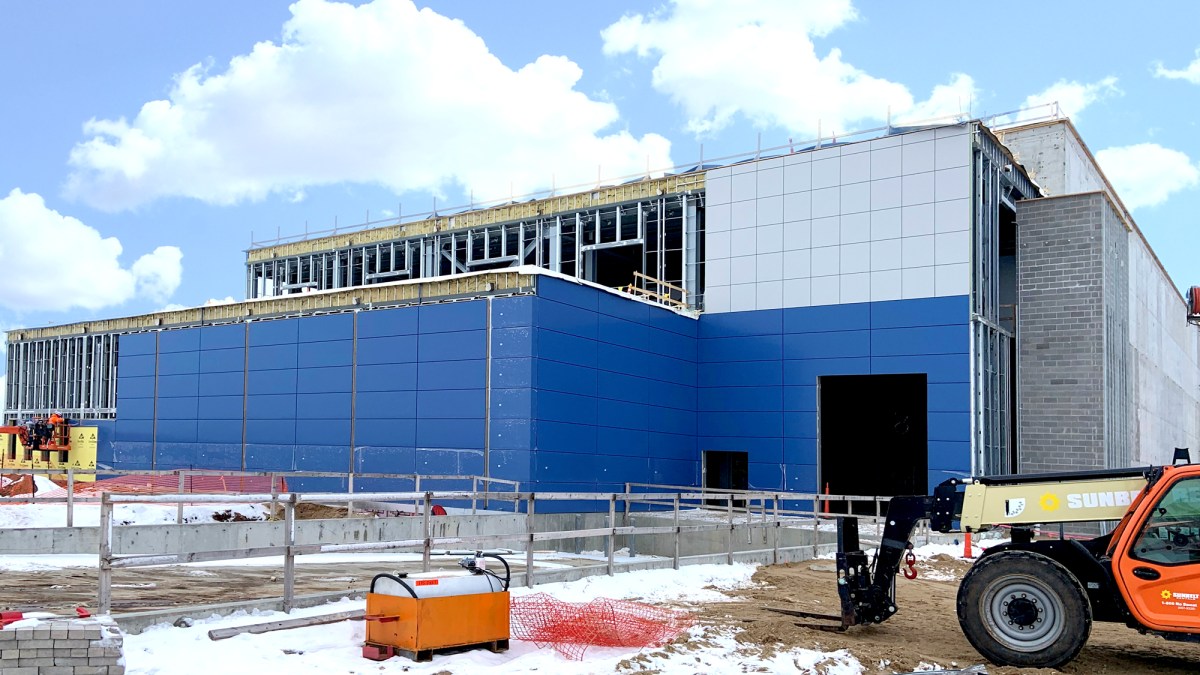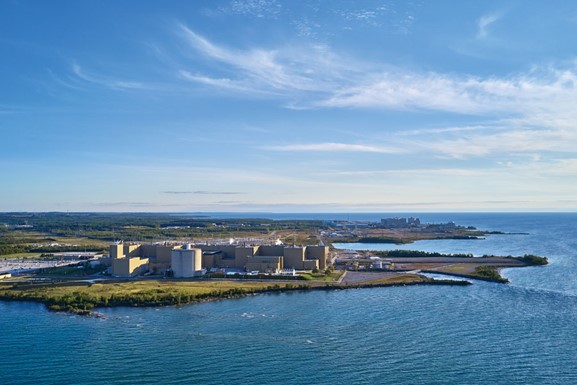The new IPS installed in Bruce Power’s Unit 7 will produce Lu-177 for treating cancer. (Photo: Bruce Power)
An international collaboration between Bruce Power, Isogen (a joint venture of Kinectrics and Framatome), and ITM Isotope Technologies Munich SE, announced a milestone marking the first time that lutetium-177, a short-lived medical radioisotope, has been produced in a commercial nuclear power reactor.
SHINE’s Mo-99 production facility under construction in Janesville, Wis. (Photo: SHINE)
SHINE Europe, a nascent subsidiary of Wisconsin-based SHINE Technologies, announced Wednesday that it has secured funding to begin designing an advanced medical isotopes facility in Veendam, the Netherlands. The new facility will use the same fusion-based neutron generator system SHINE is employing at its Janesville, Wis., facility to produce medical isotopes, including molybdenum-99, which is used in diagnostic imaging.
Bruce nuclear power plant in Ontario, Canada. (Photo: Bruce Power)
Bruce Power and Isogen, a partnership between Kinectrics and Framatome, have completed the installation of Isogen’s isotope production system (IPS) at Unit 7 of Bruce’s CANDU nuclear power plant in Ontario, Canada, making it the first power reactor in the world with installed capability to produce lutetium-177.
The Bruce nuclear power plant in Ontario, Canada. (Photo: Bruce Power)
Bruce Power has received approval from the Canadian Nuclear Safety Commission (CNSC) to begin the production of lutetium-177, becoming the first power reactor globally to commercially produce the medical radioisotope. Isogen, a joint venture between Framatome and Kinectrics, will produce Lu-177 at Bruce’s eight-unit CANDU nuclear power plant in Ontario, Canada, using Isogen’s isotope production system (IPS).
SHINE executives, construction managers, and partners commemorate a construction milestone of the medical isotope production facility in March. (Photo: SHINE)
The Nuclear Regulatory Commission has approved a request by SHINE Medical Technologies for an exemption from regulations on how commercial grade equipment is defined, allowing the company to more easily procure components for the medical isotope production facility it is building in Janesville, Wis.
NorthStar is capable of producing Mo-99 using non-uranium-based processes. Photo: NorthStar Medical Radioisotopes
Completing a 5,700-mile journey from Belgium, two 24-ton particle accelerators were delivered to NorthStar Medical Radioisotopes’ facility in Beloit, Wis., on April 22, the Wisconsin State Journal reported. Photos and a video of the accelerators being received at the facility are included in the report.









 Wisconsin-based SHINE Medical Technologies announced on November 4 that its Therapeutics division has made its first commercial sales of lutetium-177 to multiple customers. Lu-177 is a therapeutic isotope in demand by clinical trial sponsors because of its potential to treat a range of cancers.
Wisconsin-based SHINE Medical Technologies announced on November 4 that its Therapeutics division has made its first commercial sales of lutetium-177 to multiple customers. Lu-177 is a therapeutic isotope in demand by clinical trial sponsors because of its potential to treat a range of cancers.
 The latest season of
The latest season of